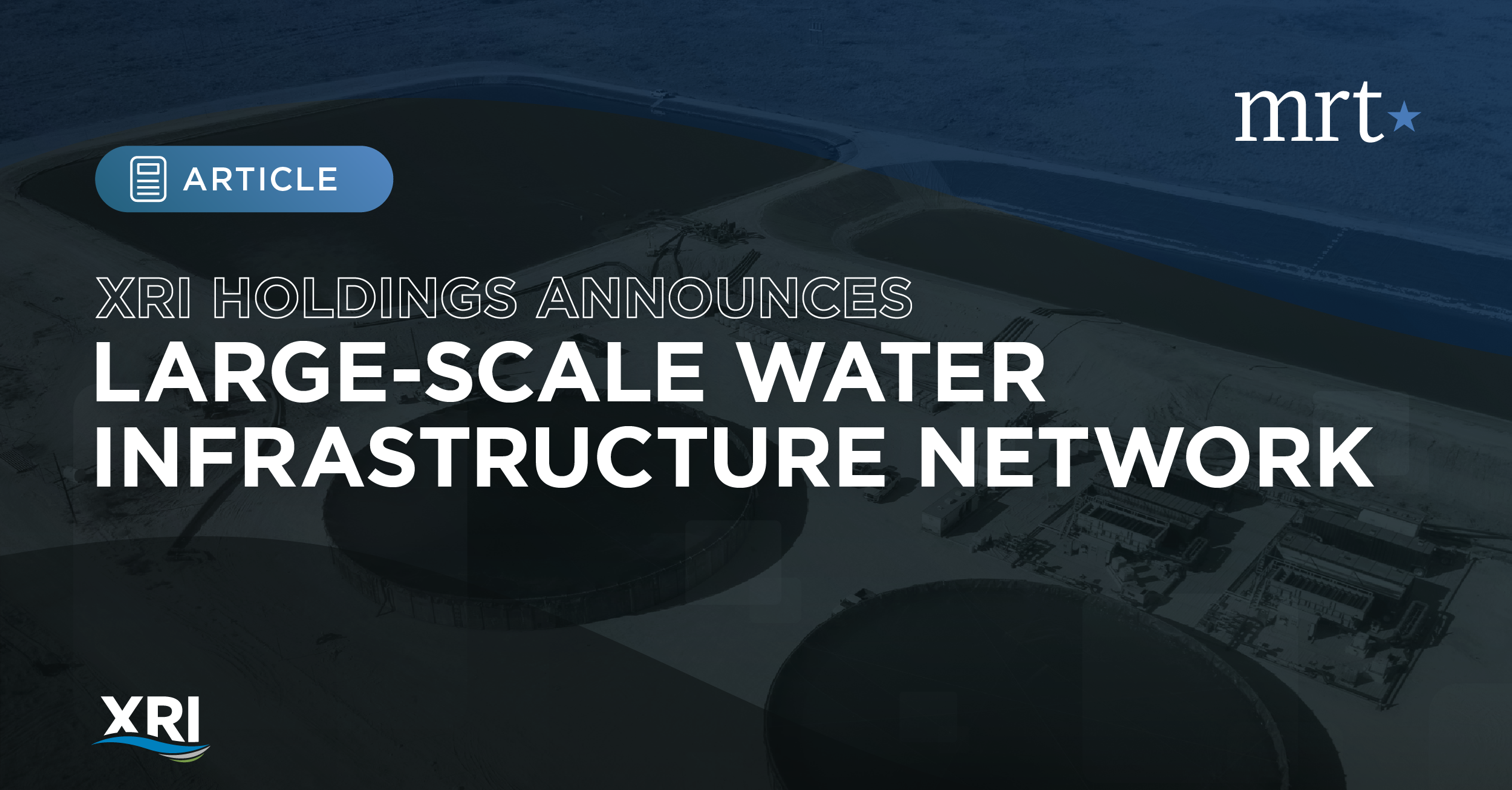Written by Mella McEwen, Oil Reporter for MRT, and first published by Midland Reporter-Telegram.
Multiple water-related issues are being addressed as XRI Holdings constructs its Evolution Pipeline System in the Midland Basin.
Currently under construction, the system is a large-scale, multi-producer water recycling and produced water infrastructure network that connects XRI’s existing pipeline infrastructure in Midland County to its infrastructure footprint in Reagan and Upton counties. When complete, the system will be comprised of 230 miles of pipeline infrastructure with recycling facilities and produced water disposal wells covering much of the Midland Basin.
When complete, it will maximize produced water recycling opportunities for customers on the system. Doing so will help mitigate seismicity risks by boosting water recycling but also transporting the water away from seismically sensitive areas. It adds water recycling in areas of high seismicity, including the Gardendale Seismic Response Area with the capability to transport produced water to XRI facilities up to 50 miles away from population centers.
“This has been in the works many, many months,” Matt Gabriel, XRI’s chief executive officer, told the Reporter-Telegram in a telephone interview.
First and foremost is the expanded recycling and reuse capabilities, he said, describing the new system as a gathering network for recycling. The Evolution system will be capable of recycling and managing more than 500,000 barrels of produced water per day from producers in Midland, Glasscock, Reagan and Upton counties.
The project is being supported by long-term contractual commitments from Chevron, the ExxonMobil subsidiary XTO Energy, and Pioneer Natural Resources.
“We recently executed a full-cycle water management agreement with XRI, from sourcing through disposal, that improves our operational flexibility and efficiency in the Midland Basin,” Chevron Permian Water Operations Manager Edgar Castro told the Reporter-Telegram by email., “This agreement connects our existing infrastructure to XRI’s growing pipeline network and allows us to move produced water away from areas with seismic sensitivity in the Midland Basin. This agreement also helps Chevron increase our ability to recycle and reuse treated produced water. This year we increased the amount of recycled produced water we use in well completions from 45% to 60% across all operating areas in the Permian. XRI’s system gives us more capacity to recycle produced water and places us on a path to achieve our goal of 80% recycled water use in our fracs by the end of 2023, all while still delivering operational value.”
Brian Sellers, vice president of Infrastructure for XTO Energy, told the Reporter-Telegram by email, “This is an important part of XTO Energy’s ongoing efforts to develop sustainable solutions to responsibly manage water in the Permian Basin.”
Said Gabriel, “When you share and reuse produced water, that is a slug of water forever removed from the calculus.”
He said there is sufficient amounts of water available to fulfill industry needs in drilling and completion work, but it needs to be in the right place at the right time. That, he added, will require a dramatic increase in transportation capacity.
The three producers initially signed on to support the system are “extremely supportive of collaborating with each other and with us,” said Gabriel of the rise in sharing of produced water among operators.
“If you go back in time a few years ago, because of custody issues and chain of title issues, there was a limit in sharing,” he noted. He sees the use of recycled produced water being reused in drilling and completion operations growing past 50% in the next few years as recycling becomes the dominant option for managing water.
“The cherry on top is moving it away from sensitive areas,” Gabriel remarked. “Our disposal facilities are in a quieter area of the region. In the event it is disposed of, it is disposed of responsibly.”
Despite the rise in recycling and reuse, Gabriel said water disposal “is and will be an important part of the picture.”
Over the past decades, he said the company has seen innovations move water management from transitioning from potable to non-potable and industrial water sources to getting trucks off the road by moving water through pipelines and introducing water exchange terminals in 2019.
“The next step will be beneficial reuse, environmental reuse outside the energy space,” he said.


